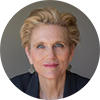Download PDF

On June 12, Francis Collins, MD, PhD, leader of the Human Genome Project and NIH director, posted an announcement on the NIH website titled “Time to End the Manel Tradition.”1 A manel is an all-male speaking panel, which has come under such fire recently that it even has its own social media moniker (#manel).
It’s one thing to complain about manels on social media, but as Dr. Collins pointed out, “It is not enough to give lip service to equality; leaders must demonstrate their commitment through their actions.” He wrote, “Starting now, when I consider speaking invitations, I will expect a level playing field, where scientists of all backgrounds are evaluated fairly for speaking opportunities. If that attention to inclusiveness is not evident in the agenda, I will decline to take part.” He then challenged other leaders to do the same. Wow!
Dr. Collins’ words led me to question my own process when selecting or recommending panel members. How do my own unconscious biases affect the choice of speakers? Is it possible that I first invite my friends or people I like or my mentors? And, what’s wrong with inviting these colleagues whom I respect, who share my values, and who I know are dependable? How can I participate in cultivating new voices and give a chance to less well-known ophthalmologists?
I’ve been reading about affinity bias, which probably contributes to the homogeneity of panels, committees, boards, and faculty appointments. Affinity bias is a particular type of unconscious decision-making, and it might be the subtlest of the unconscious biases. An example drawn from the hiring process: selecting a candidate who is a good “cultural fit” or someone I’d like to take out for a beer.
I can see how affinity bias can influence scientific panels. It’s easier and more enjoyable to work with people I know and like. And each of us has ideas about what gives another person gravitas and authority. We tend to choose people who reflect our own values and who make us comfortable. Often, those people match us demographically.
But here’s the problem with affinity bias: Diverse teams are beneficial to productivity and problem-solving—and even beneficial for business revenue.2 On the podium, a diverse panel is more likely to result in cognitive diversity, which is exactly what we need in the biomedical space. It’s not just demographic diversity that’s important; the goal is innovative thinking, new perspectives, and fresh ideas.
Academy President George Williams, a frequent panelist at meetings, is on board with Dr. Collins. He said, “We’ve heard over and over from the same people, and it’s time to hear from some fresh—and equally intelligent and thoughtful—voices.” In the future, George will decline a speaking invitation if the program is all male. He’s done with manels.
Here’s what I’m doing to participate in changing our podium culture. I’ve started a folder on my laptop, and when I hear an interesting comment from a young ophthalmologist or meet a colleague who has a different perspective, I add their names to my folder along with a sentence about what was impressive. Then, I have a ready resource of ideas for participants when asked, and I’m not just thinking of my friends and the people with whom I’ve already worked.
It’s important to mention that the Academy has diversified its board, secretaries, and committees. The changes took time and required considerable thought and many frank discussions. The result: Today, the Academy board reflects our membership, which makes for a stronger organization and a better community.
Observing our younger ophthalmologists—who are well-trained, savvy, articulate, and very diverse—gives me great hope for the future of our profession. Thank you, Drs. Collins and Williams, for challenging us to make our scientific panels even better.
___________________________
1 www.nih.gov/about-nih/who-we-are/nih-director/statements/time-end-manel-tradition. Accessed July 16, 2019.
2 www.bcg.com/en-us/publications/2018/how-diverse-leadership-teams-boost-innovation.aspx. Accessed July 16, 2019.